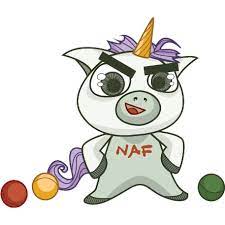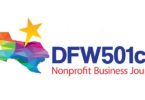Hi everyone, you may have heard about MacKenzie Scott’s new funding initiative, Yield Giving, which will be giving out 250 million in $1M grants. The catch is that organizations are only eligible if they are between $1M to 5M in budget size for two or more of the past five years.
Scott has done some cool stuff, cutting through the BS and giving away billions of dollars with few hoops to many great orgs. So this eligibility criterion in her new grant is disappointing. As many colleagues have pointed out, the vast majority of nonprofits are less than a million in budget size, and organizations led by and serving marginalized communities are more likely to fall within this category. Having this budget threshold as an eligibility requirement ensures many vital organizations led by and serving people of color, rural communities, disabled people, etc., will be left out of accessing this fund.
This line of thinking, however, is not new or uncommon. For years many funders have bought into this idea of “readiness,” when an organization has demonstrated enough financial management capacity, leadership stability, and program effectiveness to receive significant, catalytic funding. It reminds me of the story of Pinocchio, who just wanted to be a real boy: “One day, tiny nonprofit, if you work hard, you will become a real org and then you’ll be ready to handle large grants. Until then, here’s $5,000 that will take you 30 hours to apply for.”
I understand the reasoning behind the concept of readiness. What if an organization doesn’t have its systems in place, such as bookkeeping and HR. A huge grant might overwhelm it. Will it be able to “scale” up quickly? Can it hire so many new staff at once? Will existing staff and board be burned out with the new responsibilities that come with growth? What if this large grant tips the nonprofit toward become a private foundation itself and thus unleashes Fundageddon upon humanity?
These are all valid concerns (except for the tipping, which is such a low risk that it’s ridiculous for funders to even worry about). However, they are not enough to outweigh the benefits of providing significant funding to organizations led by communities most affected by systemic injustice. Ensuring these communities get the resources they need is one of the primary tenets of equity.
Funders need to stop using the concept of “Readiness” to justify giving large, transformative grants to already established organizations, while forcing torturous smaller grants on smaller nonprofits, as these orgs are often led by marginalized communities. Here are things to do and consider:
Understand the Capacity Paradox: Organizations need significant funding to build their infrastructure, but they cannot get significant funding unless they have strong infrastructure. They are stuck in a Catch-22. Grants of $5K or 10K can be helpful, but they are not the transformative investments that many organizations need to break them out of this paradox.
Examine who gets to define “readiness”: In many cases, the criteria and thresholds for which org is “ready” to receive large grants is determined by funders, who are for the most part white, urban, formally educated people with lots of privilege and relatively little lived experience. This skews the definition. People from marginalized communities may likely have completely different definitions of “readiness.”
…









